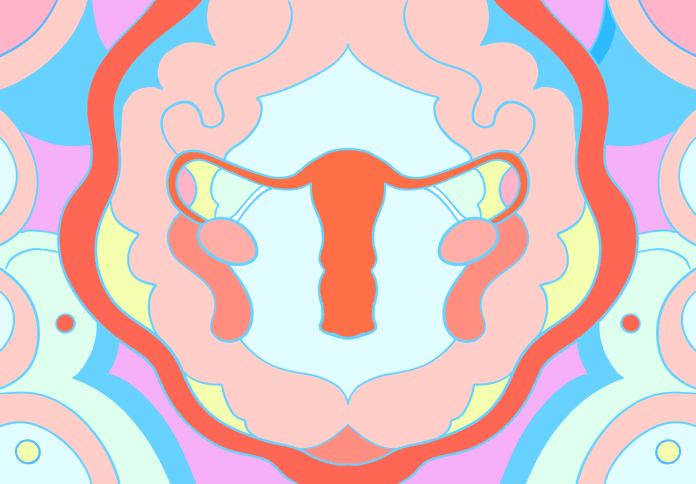Cassie Pataky
Senior Staff Writer
[Trigger Warning: Depictions of real blood and artistic representation of genitalia]
How do we balance our family’s expectations and our own beliefs? How do we stay true to the multiplicity of identities we call our own? And, how can we combine these messages using both art and science? Lee Cui, a Ph.D. student at UC Santa Barbara (UCSB), has found a way to do all of this through her artwork.
Cui grew up and attended college in China before she moved to the United States at age 20. After taking a few psychology classes, Cui switched her major from Japanese to psychology, and even started involving herself in research opportunities. She came to UCSB in 2021 to pursue her Ph.D. in psychology.
Throughout her life, Cui was interested in art and enjoyed creating, even if she could only maintain it as a hobby. Cui’s family did not support the idea of her choosing art as a career, as they did not believe she could make enough money to support herself.
“I wouldn’t tell them that I am doing art. But I would still do it,” Cui revealed in an interview with The Bottom Line (TBL). “I feel like I am trying so hard to get rid of the expectations on me from my family.”
Despite her family’s disapproval, Cui has found support from many others. Part of what motivated Cui to experiment with her own independent projects was taking an art class at UCSB’s College of Creative Studies, something her advisor encouraged. For her class projects, Cui drew from her experiences from growing up in China, combining them with her identity as a psychology researcher to create beautiful, unique works of art.
Since embracing her identity as an artist, Cui has shared some of her work with her mother. Though still opposed to pursuing art as a career, Cui’s mother has become more supportive, praising her pieces and even using some of them for social media profile pictures.
She explained that in the conservative culture she grew up in, one is expected to obey the expectations of their family, especially women. In her work, Cui explores these gender expectations, as well as restrictions when talking about menstruation, women’s health, LGBTQ+ identity, and more.
The Womb: Part I and Part II
These wire sculptures were inspired by China’s taboo about discussing menstruation and birth control. Cui told the story of her mom, who was required to wear a birth control ring after having Cui, per China’s one child policy at the time. There was not a lot of information available about birth control, so her mom mistakenly kept the ring in for 23 years and had to get surgery to take it out. Cui was visiting home at the time of this surgery, but she did not know what was going on because of how taboo it was to speak about birth control, even with one’s own daughter.
“I want to do something in memory of these facts, these sufferings,” Cui explained.
Cui sought to depict the womb as a magical place where life is created, putting an onion flower inside the first sculpture to symbolize this. Seeking also to destigmatize menstruation, she attached used pads to the outside of the second sculpture.
She stated, “All people who have periods need to undergo this process. Then, why do we try to hide it?”
Love Wins
“Love Wins” is inspired by her psychology research on the effect of the 2013 and 2015 Supreme Court rulings regarding same-sex marraige and the sentiment around the LGBTQ+ community. Cui explained that much of her research is inspired and determined by her lesbian identity. For this particular project, Cui collected tweets from before and after the ruling and analyzed their messages. Cui overlayed the tweets onto her own drawing in order to give a general sense of the feelings around the rulings. “I want to remember the moment when the Supreme Court says that same sex marraige is legal,” Cui shared.
No More Abortion
This piece was inspired by the recent Supreme Court decision to overturn Roe v. Wade, no longer protecting abortion as a national right. Cui brought up the fact that by banning abortion in states across the country, more unsafe ones will occur and this will lead to increased death rates of women, especially those who are minorities. As a counter, Cui brought up shifting the responsibility to men to prevent pregnancy (i.e. vasectomy) and, by extension, abortion.
“Stop making women make sacrifices for the policies,” Cui argues. “Let’s shift the spotlight on women’s bodies.”
How did Cui become so confident in herself and her abilities?
“Every time I feel unsure — if I should do this piece or not, if I should go out or not, if I should go to grad school or not — I trust my gut feeling,” Cui says. Clearing her head of all the expectations placed on her, Cui has faith in herself to know what she can do.











